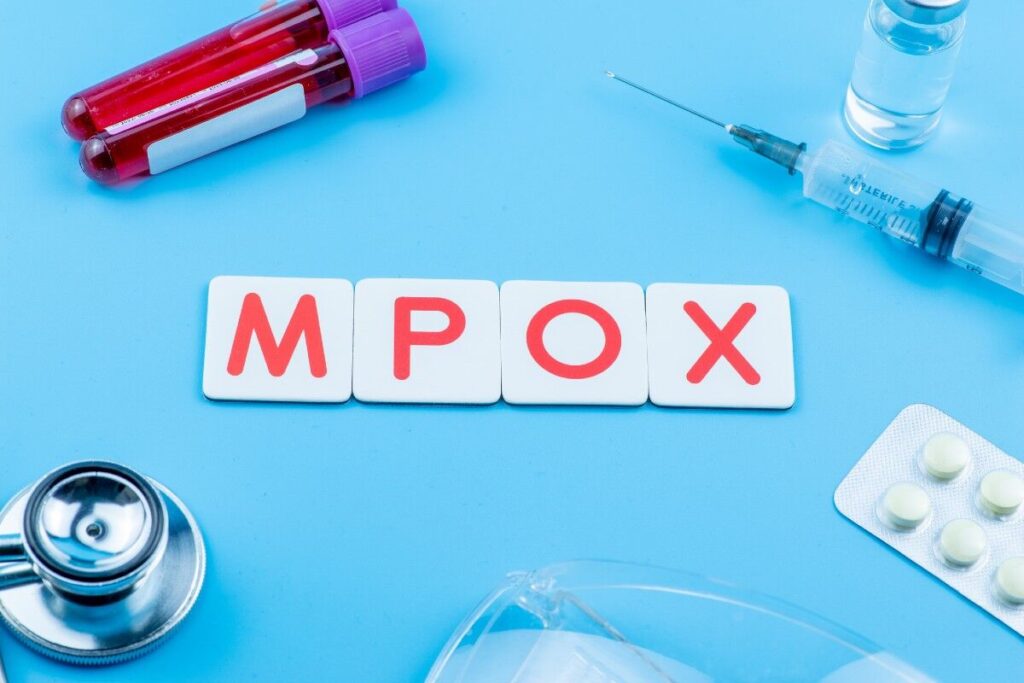ATTA® Medical Update – Mpox

Dr Richard Dawood, ATTA®'s Medical Advisor has provided members with the following update regarding Mpox. We will continue to monitor the situation closely and, as we had done in the past, issue regular updates as the sitiation develops.
On 14th August, the World Health Organisation declared outbreaks of mpox in Africa to be a Public Health Emergency of International Concern.
What is mpox?
Mpox is a viral infection that was previously known as “monkeypox”. It shares some similarities with smallpox, to the extent that smallpox vaccine may be protective; however it is much less severe. (Waning immunity to smallpox is one possible reason for the increase in numbers of cases. Previously confined to central Africa, recent outbreaks have spread globally, which is why the WHO is urging a concerted global response to prevent spread and bring the current outbreaks under control.
How is it spread?
The infection is spread mainly by very close direct contact with body fluids, secretions, including sexual exposure. It can also be spread by contact with animals, or their droppings, or by eating under-cooked contaminated meat – so-called “bush meat”. The animal reservoir of infection is mainly among rodents and non-human primates.
The illness
Infection may be symptomless, but in most cases symptoms appear 7 to 14 days following exposure. Mpox is characterised by blistering skin lesions that are often extremely painful (and highly infective to other people), occurring particularly on the skin, genitals and face. Other symptoms include fever, chills, headache, muscle aches, fatigue and swollen lymph glands. The blisters may appear first on the face, spreading to other parts of the body; or alternatively in the genital area if the infection was acquired by sexual contact. Extensive lesions around the mouth may make eating and drinking painful or impossible, requiring intravenous treatment.
Mpox strains
There are two strains (called clades – Clade 1 and Clade 2) that differ in severity and ease of spread. Clade 1 tends to be more severe, Clade 2 may sometimes be more easily transmissible.
Where are cases occurring?
It is important to bear in mind that official statistics generally underestimate true numbers of cases, since not everyone with symptoms seeks medical attention, and not all cases undergo full testing. Laboratory-confirmed cases have been reported in:
-
Burundi: over 100 cases (Clade Ib) throughout the country
-
Central African Republic: 28 cases (Clade I) throughout the country
-
Côte d’Ivoire: 6 cases (Clade II) in Abidjan and Bas-Sassandra districts
-
Democratic Republic of the Congo: > 14,000 cases (Clades Ia and Ib) throughout the country, mainly in Équateur, Sankuru, South Kivu, and Sud Ubangi provinces
-
Kenya: 1 case (Clade Ib) in Taita-Taveta County
-
Republic of the Congo: > 120 cases (Clade I) throughout most of the country, mainly in Cuvette, Kouilou, Likouala, and Point-Noire departments
-
Rwanda: 4 cases (Clade Ib); no specified locations
-
South Africa: 24 cases (Clade IIb) in Gauteng (12 cases and 2 deaths), KwaZulu-Natal (11 cases and 1 death), and Western Cape (1 case) provinces
-
Uganda: 2 cases (Clade Ib) in Kasese District; no secondary transmission has been reported
A previous outbreak in 2022 resulted in spread to over 40 countries - with over 30,000 cases in the USA, for example, mainly in the MSM community.
Are visitors at risk?
Although current news reports of mpox cases are alarming and intended to generate a global public health response in order to raise awareness and bring outbreaks under control, most tourists and travellers to Africa are not at risk.
Travel to Africa for the usual tourist activities (e.g. safari, outdoor activities, beach) should be unaffected by the outbreak.
Older travellers who have previously been vaccinated against smallpox may still have some additional cross-protection against mpox.
-
Risk arises from close contact (especially sexual contact) with infected people.
-
Those at highest risk are men who have sex with men (MSM).
-
High-risk behaviour is easily avoided and safe-sex precautions reduce the risk of infection.
-
Risk also arises from close physical contact with infected animals, or by eating under-cooked bush meat – which should be avoided. (Thorough cooking kills the virus.)
-
Healthcare workers may be at risk if caring for people who are ill with mpox
-
Journalists and news media personnel should avoid physical contact and observe the usual hygiene precautions when reporting on the evolving mpox outbreak situation
Vaccines and treatment
-
In the UK, vaccination is available for MSM and healthcare workers via the NHS.
-
Antiviral treatment may provide benefit in the most severe cases.
More information:
UK: NaTHNaC https://travelhealthpro.org.uk/disease/125/mpox-monkeypox


